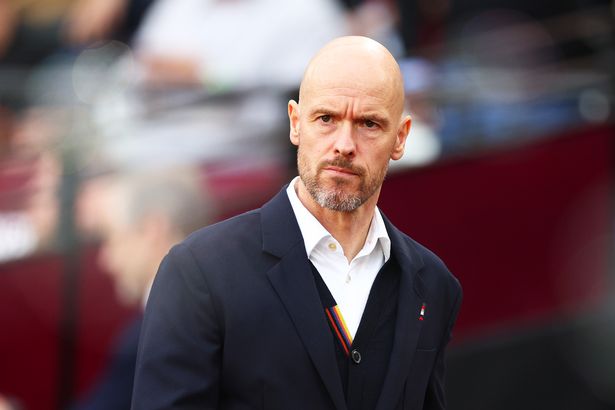Does anyone know if Erik ten Hag is a good football manager?
Or if he’s just bang average? He’s fast approaching two years in the job and it’s difficult to gauge whether, if given the tools, he can turn Manchester United into a genuine force.
On one hand, his first full season gathered pace like an Alpine avalanche after a horrible start, culminating in the Carabao Cup and a finish in the top four. On the other hand, his second was limped.
An awful Champions League campaign, stuttering return in the domestic league but still with a realistic shot at success in the FA Cup, it’s been more bad than good.
All of which leaves the court of public opinion still in the jury room, deliberating whether this quietly-spoken Dutchman – something of a rarity in football – has the X-factor necessary to grab this behemoth and make a success of it.
The fact is, all of us – punters, neutrals and professional observers like yours truly – haven’t been given all the evidence. We don’t know, for instance, what Ten Hag’s take is on the players he’s been given in the transfer market?
We don’t know if they are recruiting he coveted, or whether they’ve just been dumped at his door and he’s been told to get on with it. Perhaps it’s a failure of this profession to really dig down and nail if Rasmus Hojlund, for example, really was top of his wanted list.
Why does that matter? It does because Ten Hag has an excuse to fail. He can point to those sat behind him in the shadows – as he did last week at Molineux – and say: “I asked for a striker in the window – and you didn’t get me one.”
The Dutchman sat in his press conference after Kobbie Mainoo’s last-gasp goal stunned Molineux – angry and frustrated. The punchline was that he had no idea of who, if anyone, was going to be delivered.
Which is strange, at a football club at which – you suppose – there should be joined up thinking. In fact, it’s clear that there isn’t any such thing.

If Ten Hag’s performance is to be measured – give him the responsibility and let’s see if he fails. The picture hasn’t been made any clearer by the truly bizarre arrival of Jim Ratcliffe, Dave Brailsford or anyone else in their inner circle.
I’ll be honest: From this perspective, the Glazers have played a blinder. They’ve recouped their initial outlay for the club by selling a share of it to Ratcliffe, yet still maintain overall control and divested themselves of any criticism in supporters’ eyes by off-loading the really tricky part – on-field matters – to someone else. else.
Be that as it may, contrast this with him with what happens at Sunday’s opponents Aston Villa. Unai Emery runs the place. Unai wanted Monchi, his former recruitment partner at Seville, to oversee transfers.
That’s what happened. Unai wanted his own backroom staff. That’s what happened. What Unai wants, Unai gets. It was evident again this week as striker Leon Bailey was offered a new, long-term deal.
